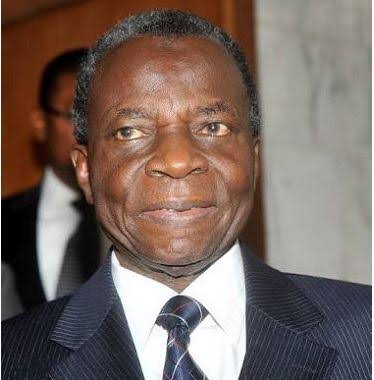By Damilola Glory Ayeni, Esq.
The recent intervention by Honourable Justice Isa Ayo Salami (Rtd.), in which His Lordship cautioned the political class and the public under the rubric of caveat emptor, deserves solemn attention. Judicial voices of such standing rightly warn against uncritical reception of constitutional assertions. Yet the marketplace of constitutional ideas is not uni-directional. For every admonition that the “buyer beware,” there is an equally forceful institutional demand that the “seller beware.”
The observation is made with sincere respect for His Lordship, and merely seeks to underscore an alternative doctrinal understanding and to illuminate that, alongside the privilege of offering constitutional interpretations, lies an equally weighty duty: to ensure that such interpretations are rooted in the text of the Constitution, judicial precedent, and legislative history. Public legal discourse must therefore balance reverence for distinguished opinions with fidelity to settled law.
This article sets out to do three things in respectful sequence. First, it clarifies the legal question posed by Section 137(3) of the Constitution of the Federal Republic of Nigeria 1999 (as amended). Second, it explicates and defends the Federal High Court (Yenagoa) decision in Andy Solomon & Idibiye Abraham v. Dr. Goodluck Ebele Jonathan & Ors. and situates it within appellate reasoning in Njoku v. Jonathan. Third, and most substantially, it develops the normative and doctrinal logic behind the transformation of caveat emptor into caveat venditor in this context.
Section 137(3): Text, Purpose, and the Issue of Applicability
At the centre of this debate stands Section 137(3), enacted by the Fourth Alteration to the Constitution and phrased thus: “a person who was sworn in to complete the term for which another person was elected shall not be elected to the office for more than a single term”. At first blush the provision reads plainly and purposefully: it seeks to prevent the circumvention of term limits by combining a completed tenure with subsequent elected terms into an aggregate tenure that exceeds constitutional maxima.
The interpretive tension, however, runs deeper than textual clarity. It concerns temporal applicability: does the 2018 amendment reach back to qualify or disqualify tenures completed before its commencement? Put differently, if a person completed another’s term before 2018 and was later elected once, can the 2018 amendment, by its letter or logic, count the earlier completion as an “elected” term or otherwise disqualify that person from running again? The answer to this question determines whether Dr. Goodluck Ebele Jonathan (who completed President Yar’Adua’s term and was elected in 2011) falls within Section 137(3)’s forbidding ambit. Then it becomes clear that the provision in this circumstance is not about interpretation/clarity but application.
The Federal High Court Judgment and Its Reasoning
In answering the question above, the Federal High Court in Yenagoa delivered a judgment of high practical significance. His Lordship Justice Isa Hamma Dashen found that Section 137(3) does not apply retrospectively. The Court’s reasoning can be summarised under three interrelated headings: textual construction, presumption against retroactivity, and the protective force of vested rights. First, on textual construction: the Fourth Alteration’s language contains no express retroactive clause. Statutes and constitutional amendments which intend retrospective reach almost invariably state so in clear terms; their absence is telling. To construe Section 137(3) as retroactive would therefore require an interpretive leap that the text does not reasonably invite.
Second, and closely related, is the well-established presumption against retroactivity in constitutional and statutory interpretation. The courts have consistently held that, unless such intent is plainly indicated, laws should not be construed to operate backward so as to impair vested rights or alter the legal consequences of past conduct. This is not a pedantic formalism; it is a structural safeguard against unpredictable shifts in legal liability that would undermine the rule of law and generated reliance dislocations. Third, the Court emphasised that applying Section 137(3) retrospectively would effectively strip previously lawful acts of their legal character and would thereby interfere with settled political expectations and rights — a posture the courts do not lightly adopt.
The Federal High Court concluded that Dr. Jonathan had been “elected” only once (in 2011), and that to classify his earlier assumption of the Yar’Adua term as an “election” — or to permit the 2018 amendment to operate retroactively — would contravene the prospectivity presumption and impugn settled rights.This reasoning is supported by the Court of Appeal’s earlier pronouncement in Njoku v. Jonathan (2015), which held that the 2010 assumption was a succession, not an election. The coherence between appellate reasoning and the Federal High Court’s approach lends stability and measure to the view that, under current law, Dr. Jonathan has not been elected twice and therefore is not, in legal consequence, automatically disqualified under Section 137(3).
The Doctrine of Precedent and Present Legal Position
The practical legal effect of the Federal High Court decision is straightforward and substantial. The judgment stands as extant judicial authority on the precise question of the 2018 amendment’s reach to pre-amendment tenures. That the decision has not been set aside by the Court of Appeal or the Supreme Court means that, for now, it controls the legal landscape and binds litigants and public authorities unless a superior court rules otherwise. This is the predictable operation of the doctrine of precedent and the finality of judicial pronouncements in our vertical judicial hierarchy.
From Caveat Emptor to Caveat Venditor:The Normative Burden
Having clarified the textual and judicial posture, we turn to the analogy that motivates this article: how does the position of the “buyer” (the public, political actors, media or party officials who receive a legal claim) transform into a position where the “seller” (the commentator, the legal adviser, or even a senior jurist’s public assertion) must be wary?
At a first level, caveat emptor captures the commonsense duty of recipients to approach legal claims critically. Citizens and political actors must not accept sweeping legal propositions on face value. But caveat emptor alone is insufficient in a democratic polity where legal pronouncements — particularly those from highly placed jurists or influential commentators — have immediate legal, political and reputational effects. Concretely, a categorical public statement that a named individual is ineligible to run may chill political participation, shape party strategy, prompt rushed litigation, distort media narratives, and stir public unrest. The “product” sold — a confident legal conclusion — can cause consequential downstream effects. For this reason, the seller of legal certainty must meet a heightened standard of care.
The doctrine of caveat venditor in this context is not tort-law mirroring, but an ethical and institutional principle. Those who market legal conclusions into the public domain must ensure three minimum things. First, fidelity to text: the claim must be defensible in the language of the Constitution and statute. Second, fidelity to precedent: the claim must reconcile with binding authority, or, if it departs, must explain why that departure is necessary and sound. Third, fidelity to doctrine: the claim must respect embedded canons like the presumption against retroactivity and principles that protect vested rights.
When sellers fail this duty, several institutional consequences arise. Political actors may rely on a mistaken legal premise and make strategic choices (e.g., withdrawal of candidacy, reallocation of resources) that cannot be undone. Judges may be asked to resolve disputes that are avoidable with deeper pre-statement analysis, and counsel may be forced into defensive litigation with attendant public cost. More perniciously, the public’s faith in constitutional adjudication is at risk when legal pronouncements float untethered to precedent only to be disproven later — a dynamic that breeds cynicism and confusion.
This is not to suggest that jurists must never express principled, anticipatory views. On the contrary, respected jurists often play an invaluable role in framing constitutional discourse. But the form and context of such interventions matter: a cautious, reasoned engagement that acknowledges competing precedent and the current judicial footing respects both the independence of the judiciary and the public’s entitlement to clarity.
The Federal High Court’s Judgment and Its Continuing Authority
In the present matter, therefore, caveat venditor counsels restraint and accuracy. If a senior jurist or commentator concludes, on normative grounds, that an outcome ought to be different, that view should be clearly framed as normative or provisional — as a proposition calling for appellate resolution or legislative clarification — rather than as a settled legal fact. If the jurist wishes to argue for retroactivity as a normative reform, that case can be advanced persuasively on policy grounds: protecting democratic rotation, preventing manipulation of succession, and promoting predictability in tenure are defensible aims.
Yet a policy preference does not substitute for a current legal reality: the text, presumption against retroactivity, and the existing Federal High Court judgment govern until the appellate courts hold otherwise. Finally, what are the practical and procedural implications going forward? Politically, parties should not treat the matter as litigated settled beyond appeal; counsel for any party contemplating litigation must carefully consider locus standi, ripeness, and the possibility of mootness. Legally, a party convinced of error must bring a timely appeal so that the issue is addressed at the correct appellate level. If the Supreme Court or Court of Appeal were to hold that Section 137(3) does have retroactive effect, the legal landscape would shift — but until such higher authority speaks, the Federal High Court’s reasoned holding remains the lodestar.
In sum, the interplay between caveat emptor and caveat venditor is not rhetorical flourish; it is a doctrinal and ethical reminder. The buyer of legal claims must remain vigilant. The seller of those claims must be precise, precedent-aware, and candid about the existing state of the law. In the current dispute over Section 137(3) and Dr. Jonathan’s eligibility, the courts have already spoken in a manner that preserves his eligibility in the present legal order. Respectful debate about whether the law should be otherwise is welcome and healthy; but until the higher courts pronounce differently, the Federal High Court’s judgment — standing and unappealed — must be respected as the operative legal position.



























